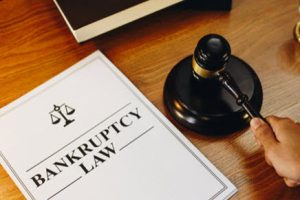What’s the Difference Between Chapter 13 and Chapter 7 in Indiana?

Many more people might be asking this question in the coming months. Most observers predict that, after coronavirus financial relief programs expire, there may be a record number of consumer bankruptcies in 2021.
Typically, people file bankruptcy because a financial storm hits them. Usually, that storm is medical bills, unemployment, business downturn, or a divorce. For many families, the coronavirus financial storm could combine most or all of these individual events.
To save money, many people turn to nonlawyer bankruptcy petition preparers. But these individuals can only fill out forms. They cannot give you legal advice or represent you in court if necessary. Only a Chicago bankruptcy lawyer can do these things. And, only an experienced lawyer knows how to help your family maximize the fresh start which the Bankruptcy Code guarantees.
Benefits of Bankruptcy
The Consumer Financial Protection Bureau recently relaxed the rules which control harassing creditor contacts. So, many debt collectors will be more aggressive than ever in 2021. And that is awfully aggressive.
The Bankruptcy Code’s Automatic Stay keeps creditors at arm’s length. In fact, the Bankruptcy Code prohibits all adverse creditor actions, such as:
- Harassing contact,
- Repossession,
- Foreclosure,
- Collection lawsuits, and
- Wage garnishment.
Bankruptcy does more than give families immediate breathing room. It also shields their core assets, like a house, car, Social Security benefits, and a retirement account, from creditor seizure. No other debt relief program offers these benefits.
Chapter 7
When financial mega-storms like coronavirus hit, many families use credit cards to pay living expenses. This approach might be necessary, but it is not sustainable for more than a few weeks. The interest payments are just too high.
Chapter 7 quickly wipes out credit card debt and other unsecured obligations, such as medical bills and payday loans. Priority unsecured debts, like student loans and back taxes, are dischargeable in some cases. The aforementioned Automatic Stay applies whether the debt is dischargeable or not. So, if the IRS is garnishing your wages, bankruptcy stops that garnishment, even if the debt is nondischargeable.
Chapter 7 also protects your assets from seizure. The “liquidation” nickname only applies to nonexempt assets, like yachts and vacation homes. And, it only applies to these assets in some cases.
Chapter 13
The wage-earner bankruptcy is designed for families who, for whatever reason, are behind on secured debt payments, like auto loans and home mortgages.
Chapter 13 gives these families up to sixty months to gradually erase debt delinquency. The trustee (person who oversees the bankruptcy for the judge) essentially places Chapter 13 debtors on an allowance. After they pay monthly bills, the trustee divides their disposable income among secured and some priority unsecured creditors.
In most cases, the Automatic Stay remains in effect throughout the protected repayment period. As long as the trustee approves the repayment plan, which almost always happens, creditors must wait to get the money they are owed, regardless of the outstanding balance.
When the protected repayment period ends, the judge discharges most remaining unsecured debts.
Connect with Dedicated Lawyers
Different bankruptcy options are available for different families. For a free consultation with an experienced Chicago bankruptcy attorney, contact the Bentz Holguin Law Firm, LLC. Convenient payment plans are available.
Resource:
bloomberg.com/news/articles/2020-04-10/record-bankruptcies-predicted-in-next-year-as-unemployment-soars


